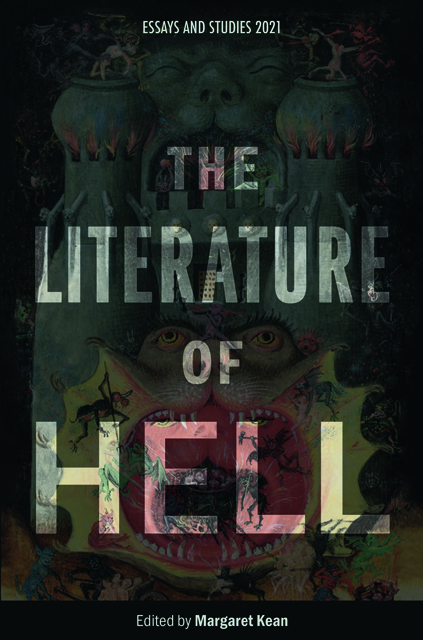Pandæmonium as Parallax: Metropolitan Underworlds and Anarchist Clubs in Nineteenth-Century London and its Literature
Published online by Cambridge University Press: 14 January 2023
Summary
Late nineteenth-century London’s East End is notorious as a hellhole: an area of industrial furnaces, fumes, abject poverty, and moral degradation. The appalling conditions, and the work of the social reformers, writers, and journalists who sought to uncover the social injustices that caused such squalor, are now so well-known as to have become something of a commonplace in discussions of hell. The Victorian cityscape will however still have more to share with us about the application of infernal metaphors and rhetoric in the late-nineteenth century if we allow that our existing methodologies of literary and cultural recovery themselves require reassessment. Historical change becomes most visible when pre-existing generic structures are critiqued from alternative perspectives, but we tend to keep our inherited property, its sites and motifs, even as we invert its iconography. This essay will trace the rise of self-consciously subterranean political organisations within late-Victorian society and, in so doing, look again at how that society defined itself and how it made political meaning out of hell.
What is an ‘underground’, and how do you build one? It demands the construction of something more than a venue; it necessitates a whole new conceptual infrastructure. Underground cultural movements arise within particular urban contexts and those contexts also shape them. Critical work in urban studies and geography has demonstrated the importance of understanding cities not as bounded locations but in terms of their interrelations with other places and peoples, as nodes and meeting places within flows and networks. What comes through most strongly in such an analysis is the significance of material urban spaces for these exchanges and circulations. These were exchanges that quite literally took place. Anarchism proposes a different way of inhabiting the world around us. The way anarchists actually lived in nineteenth-century London provides a vital counterpoint to their depiction in fiction of the time, and giving due attention to this representational gap will provide literary criticism with a set of tools to question conventional applications of the rhetoric of damnation. In order to meet the challenge, this essay recovers material contexts of cultural history and uses this approach to inform its analysis of infernal metaphors and rhetoric in late-nineteenth-century popular fiction.
- Type
- Chapter
- Information
- The Literature of Hell , pp. 37 - 68Publisher: Boydell & BrewerPrint publication year: 2021



